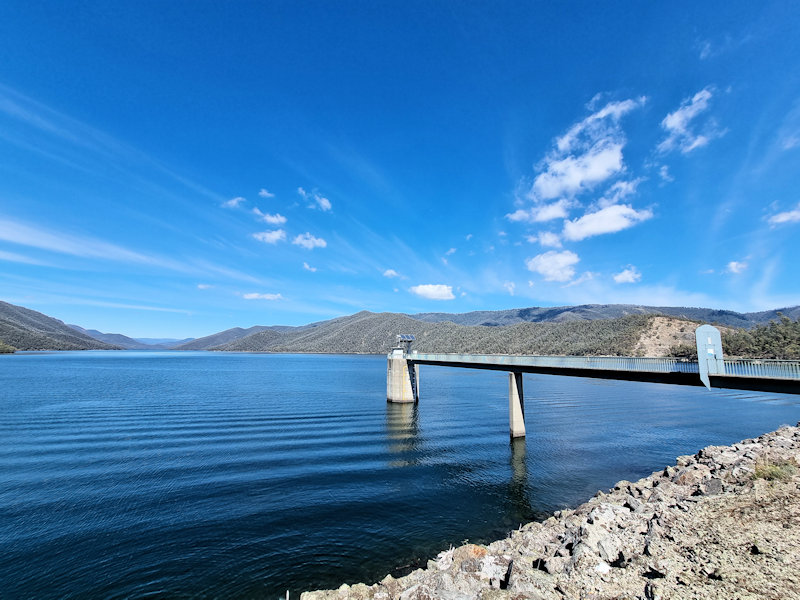History of Tumut
Tumut is a historic town in the Riverina region of New South Wales, nestled at the foothills of the Snowy Mountains. Originally inhabited by the Wiradjuri people, Tumut’s European history began in the early 19th century, with settlement beginning around the 1830s. Its name is derived from an Aboriginal word thought to mean “quiet resting place by the river,” reflecting its peaceful location on the Tumut River.
Tumut grew as a service hub for surrounding farming communities, particularly for sheep grazing, cattle, and later, timber.
Tumut plays a vital role in the Snowy Mountains Scheme, one of the most significant hydroelectric and irrigation projects in Australian history. Constructed between 1949 and 1974, the Scheme was built to generate hydroelectricity and provide water for inland irrigation.
The Tumut River is central to the Scheme’s western section. The Tumut 3 Power Station, completed in 1973, is one of the largest power stations in the Scheme. It plays a key role in peak electricity supply and water diversion. The town of Talbingo, just 45 minutes from Tumut, was built to house workers for the Scheme.
Modern Tumut is known for its natural beauty, relaxed pace, and outdoor lifestyle. It thrives on tourism, agriculture, and forestry industries, with plantation timber mills being among the largest employers in the area.
Visitors are drawn to Tumut for its picturesque setting, surrounding mountain scenery and outdoor activities.
Things to See and Do in Tumut New South Wales
Tumut 3 Power Station
Located at Talbingo, Tumut 3 is the largest power station in the Snowy Scheme. It houses six turbines and can generate 1,500 megawatts of electricity. It also serves as a pumped-storage hydroelectric station, capable of reversing water flow to store energy.
While the power station is generally not open for public tours, interpretive signage outside offers information on its function and construction. The nearby lookout provides excellent views of the infrastructure and waterway.






Black Perry Lookout
This lookout offers panoramic views over the Snowy Mountains and surrounding bushland. It’s located off the Snowy Mountains Highway and provides a scenic stop for those exploring the region.
This was a quick stop to admire the views over the surrounding mountains.


Talbingo Dam
Talbingo Dam is a vital reservoir in the Snowy Scheme, holding back the waters of the Tumut River and feeding the Tumut 3 Power Station. It’s an engineering marvel, standing over 160 metres high.
Visitors can admire its size from nearby lookouts or picnic by the shores. The reservoir is also popular for fishing, kayaking, and boating, with access points at designated areas. While we were there, many people were boating and skiing on the lake.



Tumut Lookout
This local vantage point offers sweeping views over Tumut and the surrounding valley. It’s especially beautiful in autumn when the town’s many deciduous trees turn vivid shades of red, orange, and gold.
The lookout is accessible by car and offers picnic facilities, making it a great spot for a break. It also helps visitors appreciate Tumut’s setting between river plains and the mountain foothills.
How to Get There
Tumut is around 410 km southwest of Sydney and 525 km northeast of Melbourne. It’s accessible by car via the Hume Highway, then turning off at Gundagai. The drive from Canberra takes about 2 hours.
There is no train service to Tumut, but regional buses from Wagga Wagga or Gundagai operate occasionally. Most visitors travel by car to explore the wider Snowy Valleys region comfortably.
What Did We Think?
Tumut is a gateway to the Snowy Mountains and a key town in the development through the Snowy Mountains Scheme. It offers a mix of heritage, natural beauty, and engineering marvels. Whether you’re interested in history, scenery, or outdoor adventure, Tumut and nearby Talbingo offer a rewarding travel experience in regional New South Wales.

Our photos are available for purchase on
Other Places to Visit in New South Wales
To see what else there is to do in New South Wales, click here.

Leave a Reply